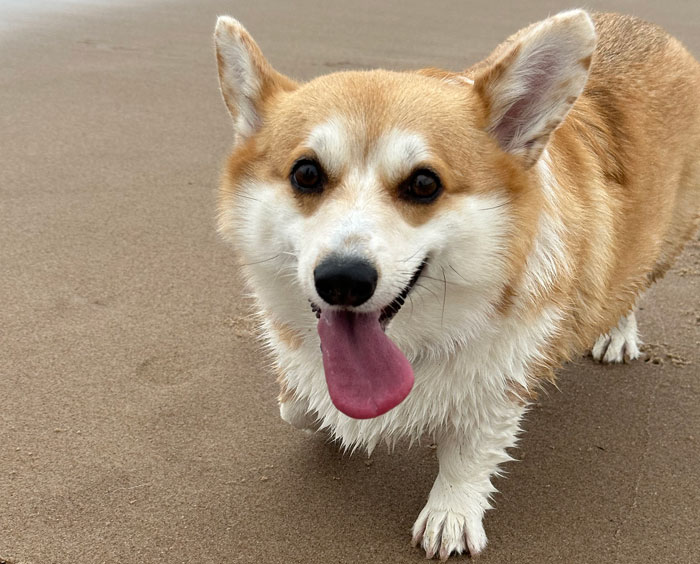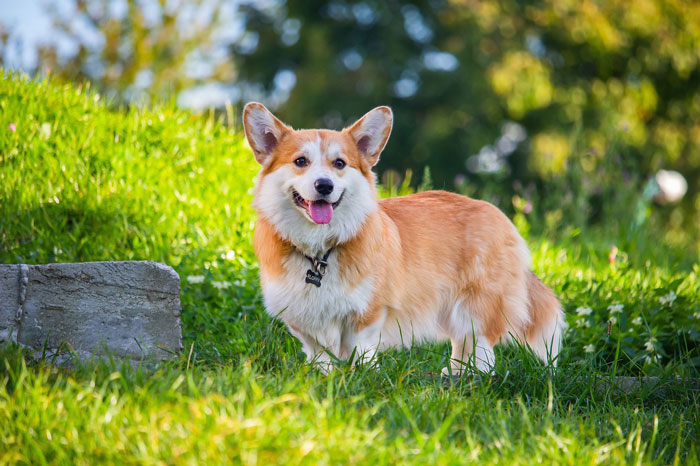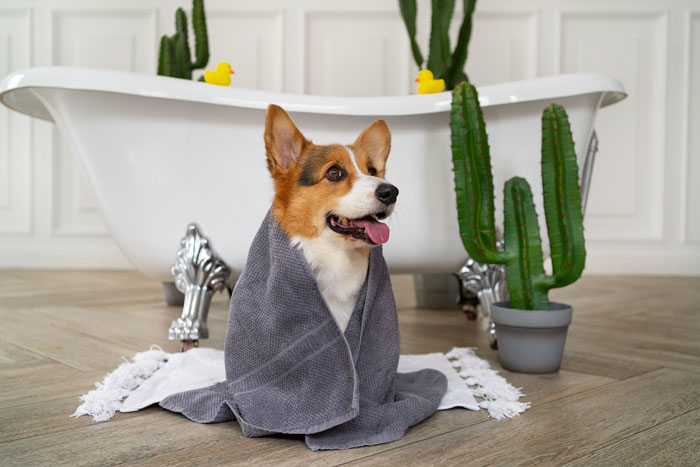Quick Facts
Share iconImage credits: corgi_halfy • Origin: Wales • Breed Group: Herding dogs • Size: 10 to 12 inches tall at the shoulder, up to 30 pounds • Lifespan: 12 to 13 years or more with proper care • Coat: Short, thick, double coat with moderate to heavy shedding. Their coat has white markings and comes in black and tan, fawn, red, or sable. • Personality: These friendly and affectionate dogs make great companions while their alertness makes them great watchdogs. Although sometimes stubborn, this intelligent breed does well with training. • Exercise Requirement: They are athletic dogs that require a moderate level of daily exercise. Consistent exercise is also important for weight management. • Training: This breed is intelligent and eager to learn, which makes them great in training. Proper training and early socialization are important to prevent unwanted behavior like nipping at the ankles. • Grooming: They have a thick, double coat that sheds and requires daily brushing. • Health: As a breed, they may be predisposed to certain orthopedic, neurologic, and cardiac conditions. But with responsible breeding and routine veterinary care, this breed is generally quite healthy.
Breed Overview
Share iconImage credits: MolnarSzabolcsErdely The Pembroke Welsh Corgi is one of the world’s most popular herding breeds. Pembroke Welsh Corgis have a long history and are said to have been brought to Wales by Flemish weavers. While initially bred to be cattle herding dogs, their happy and playful temperament makes them great additions to the family. These short-legged little dogs have a lot of love to give.
Personality
Known for their friendly and outgoing personalities, it is easy to see why Queen Elizabeth II loved Corgis. The Pembroke Welsh Corgi was originally bred to herd cattle, which is reflected in their courageous and independent spirit. Because of this, they can be stubborn at times but these intelligent dogs often do well with training. Although they were initially bred to be working dogs, Pembroke Welsh Corgis are primarily seen as popular family pets in modern society. They are loving and affectionate, making them great companions. They tend to win over everyone they meet and are typically good with children. This breed craves family time and can be fiercely loyal. With their alertness and bold bark, these dogs are also effective watchdogs.
Size
The Pembroke Welsh Corgi is the smaller of the two Corgi breeds with the other being the Cardigan Welsh Corgi. Pembroke Welsh Corgis are fairly small dogs measuring between 10 and 12 inches tall at the level of the shoulder. Females typically weigh up to 28 pounds whereas males can be slightly larger weighing up to 30 pounds. Pembroke Welsh Corgis have deep chests and ride low to the ground. Although they are short, their legs are muscular and quite powerful.
General Care
Like all pups, Welsh Corgis need proper at-home care to thrive. Pembroke Welsh Corgis in particular have certain general care needs to keep their backs safe and to keep them at a healthy weight.
Housing Recommendations
An apartment is usually plenty of space for a Corgi as long he has regular access to a larger outdoor space for exercise. Because of their short legs and long back, Welsh Corgis should not be allowed to jump on and off of furniture since this can result in back injury. It is a good idea to supervise your Corgi until he gets acclimated to your home.
Exercise Requirements
All dogs, including Corgis, need consistent mental stimulation and exercise for their overall health and well-being. Making sure your Corgi gets enough exercise is necessary to prevent destructive behavior and other behavioral issues like excessive barking. With their long body and short legs, Corgis may not look it but they are actually very strong and athletic. As a working breed, Pembroke Welsh Corgis need regular physical activity and enjoy when they can perform a job. They need moderate daily exercise which can be in the form of playtime outdoors, brisk walks, or even a jog. Some Pembroke Corgis may also enjoy dog sports like canine agility, tracking, and herding activities.
Training
Pembroke Welsh Corgis are usually smart and eager to please their owners, which typically makes them easy to train. Because of their herding instincts and their background in herding cattle, Pembroke Corgis may try to herd people and may nip at the heels and ankles. This is why dog training and early socialization as a puppy are crucial including exposure to a variety of people and scenarios. You can help mold your Corgi into a well-adjusted and well-behaved dog by using positive reinforcement and socializing him with other dogs and young children.
Diet
You will need to provide a balanced diet for your Pembroke Welsh Corgi. Choose a commercially prepared dog food specifically formulated for your dog’s age and stage of life. Commercially prepared diets are preferred because it is difficult to create a home-cooked diet that is complete and balanced, especially in the long term. Like all dogs, Corgis love to eat. However, it’s important to be aware that Pembroke Corgis can be prone to weight gain and may gain weight easily. Almost 60% of dogs are overweight or obese. Weight management is extremely important in preventing orthopedic and other health issues from developing. To keep your Corgi at a healthy weight, work with your veterinarian or a veterinary nutritionist to determine how much to feed your dog. Don’t forget that treats must be accounted for when calculating your dog’s caloric intake requirement.
Grooming
Share iconImage credits: freepik Pembroke Welsh Corgis have a thick, double coat made up of straight hair. They have a soft and light undercoat covered by a rough outer coat. These dogs shed quite a bit with heavier shedding during the spring and summer seasons. Intact females may also shed more when they are in heat. Their coat requires daily brushing, which can be accomplished using a comb and a slicker brush. A rake tool may be helpful in stripping the undercoat. Please note that their coat must be completely dry before brushing. Like all dogs, Pembroke Welsh Corgis need regular bathing but baths may also be helpful with extra shedding during the spring and summer. In addition to regular baths, Pembroke Welsh Corgis will need regular nail trims, ear cleaning, and toothbrushing.
Health
Routine veterinary care is essential for keeping any dog healthy. Although they tend to be generally healthy, there are some medical conditions that purebred Pembroke Welsh Corgis are more predisposed to as a breed. This is why it is so important to use a knowledgeable and responsible breeder who tests for certain health conditions. These are some of the health issues Pembroke Welsh Corgis may be at risk for: • Elbow dysplasia • Hip dysplasia • Degenerative myelopathy • Epilepsy • Intervertebral disc disease • Cataracts • Patent ductus arteriosus • von Willebrand’s disease Anyone can write on Bored Panda. Start writing! Follow Bored Panda on Google News! Follow us on Flipboard.com/@boredpanda!




